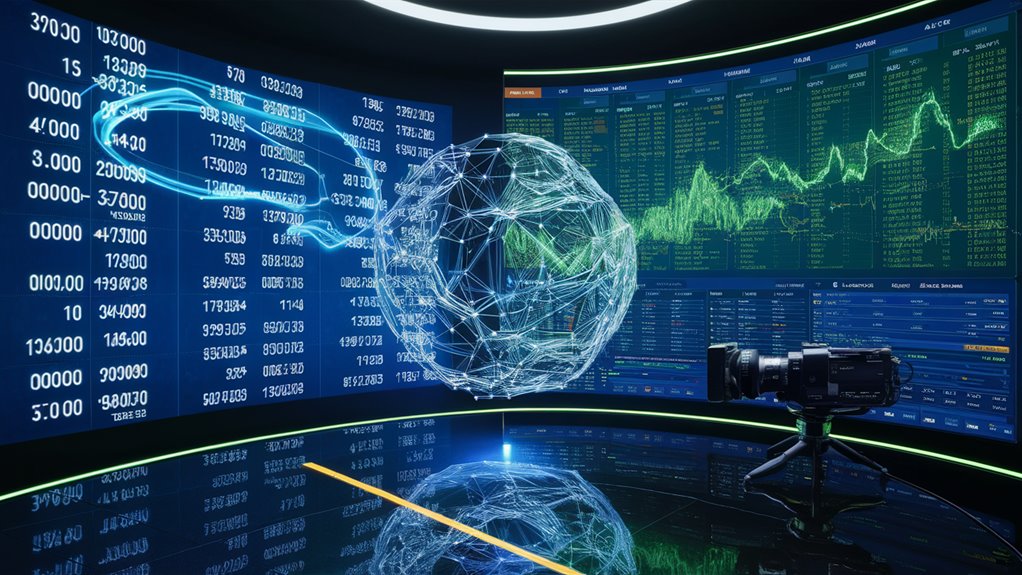How AI Is Changing Sports Betting

Artificial Intelligence (AI) is transforming sports betting by processing vast amounts of data, handling over 100 million bits of data every second. The new AI systems in betting now achieve accuracy rates of 75-85% in major sports events, offering an 8-10% improvement over traditional methods.
Smarter Predictions
These advanced AI tools analyze a variety of factors:
- Historical player performance
- Information on teams and past games
- Current social media discussions
- Weather conditions
- Injuries and team changes
Quick Data Work
Utilizing neural networks and sophisticated AI enables:
- Rapid adjustment of odds within seconds
- 73% probability of identifying favorable bets
- Real-time game analysis
- Efficient management of bet money
This robust application of data in betting establishes new paradigms in sports betting, blending intelligent predictions with rapid data analysis to enhance betting opportunities. The synergy of AI and sports data continuously enhances the betting landscape, providing more accurate information to both bookmakers and bettors.
How AI Sees Sports Data
Big Changes in Sports Data
AI has revolutionized the acquisition and analysis of sports data.
Advanced AI tools rapidly assess millions of data points, encompassing player performance, environmental conditions, team dynamics, and historical game scores.
These tools identify patterns and correlations that traditional methods may overlook, offering valuable new insights for sports data.
Fast Checks and Smarter Guesses
AI models for games excel at analyzing live game data, maintaining accurate predictions based on ongoing game developments.
Modern AI sports tools predict game outcomes with 60-65% accuracy, significantly outperforming traditional methods, which achieved only 52-55% accuracy.
Bigger Data Mix
Enhanced sports platforms integrate diverse data sources into unified predictions.
They analyze over 100 variables about a team, including social media sentiment, health data, and team cohesion 먹튀검증 토토사이트
Resulting predictions comprehensively consider all potential factors influencing game outcomes.
Key Things to Watch
- Player performance
- Real-time game data
- Team dynamics
- Historical game results
- System-generated insights
- discover how AI
Gaming with Machines
Advances in Sports: Machine Guesses

Using AI to Improve Guesses
Machine learning tools enhance sports predictions by thoroughly analyzing thousands of historical games to uncover straightforward patterns.
More sophisticated tools, such as neural networks, accumulate extensive historical game data.
Seeing Scores and How Well Guesses Work
Predictive models in major sports often perform admirably, achieving 60-65% success rates, surpassing older methods.
These intelligent prediction systems consider key variables like:
- Injury data
- Weather impact
- Team morale
- Historical game data
- Head-to-head game statistics
Learning Together
Collaborative model learning allows for more accurate predictions using advanced frameworks like TensorFlow and PyTorch that adapt with new information.
- Game changes
- League dynamics shifts
- Performance trends
- Atypical patterns
Main Points to Spot
- Accuracy of point spread
- Precise win/loss predictions
- Scoring trends
- Prediction quality
Clever Link Finding
Machine systems excel at identifying subtle correlations between factors affecting game results.
Noteworthy connections include:
- Team travel effects
- Social media sentiment
- Player condition
- Environmental patterns
This comprehensive view of sports data steadily enhances our predictive capabilities, establishing new expectations for game outcomes.
Quick Odds Changes
Faster Odds in Sports Betting with AI
Smart AI Odds Systems
Innovative AI systems revolutionize sports betting by rapidly adjusting odds and processing data efficiently.
These platforms review over 50 variables, such as injuries, weather, and betting area patterns, to identify favorable bets.


